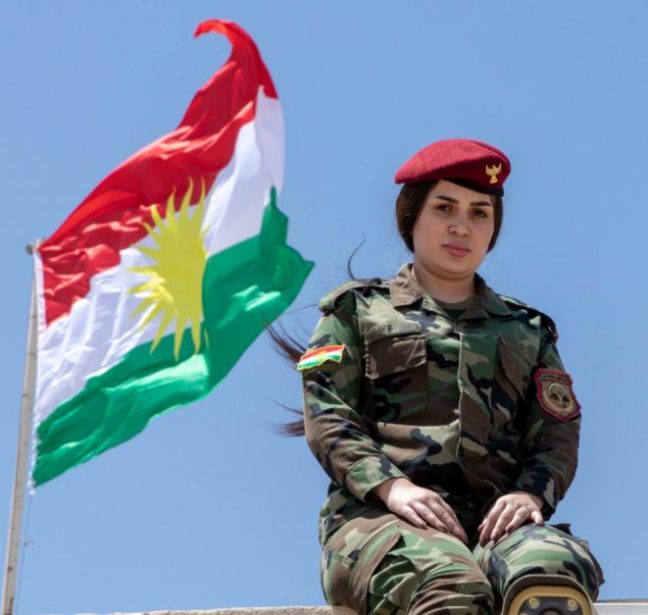By Rachel Avraham
It recently has been reported that Russia is seeking to propose an interim Iranian nuclear deal that will offer the Islamic Republic limited sanctions relief in exchange for nuclear proliferation. Although Iran so far has rejected the Russian proposal, should they change their mind, how would this new nuclear deal affect the Kurds?
In an interview, Dr. Baban Eliassi of Geneva University stated: “Iran severely oppresses its ethnic minorities. This policy began in 1906 after the Mashruteh Revolution. This policy continues to this day. Kurds are treated like second-class citizens, without any political, economic, religious or cultural rights. There is no development in the Iranian Kurdish provinces. There is no indication that another Iranian nuclear deal will bring about any change in the Iranian government’s policies.”
On the contrary, Dr. Eliassi thinks that a new nuclear deal will make the situation worse: “When the government is powerful economically, the likelihood of more repression is much higher. The Islamic Republic of Iran finances the Shi’ite Islamist groups like Hezbollah, Houthis… and others who share Tehran’s policies.”
According to Dr. Eliassi, no economic gains made in the deal will be felt by Iranian Kurds; only the terrorist groups outside Iran will benefit: “Economically, the government’s lack of investment in manufacturing sectors such as industry, underground resources, agriculture, animal husbandry and public services has made the economy of the Kurdistan region underdeveloped and a large part of its economic potential easily wasted. The Kurdish provinces are suffering from chronic unemployment.”
According to Kurdish human rights groups, in 2020, over 500 Iranian Kurds including human rights defenders were arrested for politically motivated reasons and charged with broad and vaguely worded national security-related offenses. At least 159 of them were subsequently sentenced to prison terms ranging from one month to 17 years and four received the death penalty. According to the UN Special Rapporteur on Iran, “Kurdish political prisoners charged with national security offences constitute a disproportionately high number of those who received the death penalty and are executed.”
Dr/ Eliassi noted that the Iranian regime is desperate for sanctions relief in order to fund its aggressive foreign policy, support terror groups like Hamas, Houthis, Hezbollah, etc. and ensure the survival of the regime: “A deal will allow Iran to normalize relations with a significant portion of countries that disagree with Iran’s aggressive policy. On the other hand, if tensions on the nuclear issue continues and Iran’s economy continue to deteriorate, protests inside Iran will eventually increase. At the foreign policy level, Iran as before, will not be able to support pro-Iranian militias outside Iran.”
Nevertheless, Dr. Eliassi thinks that Iran will remain unfriendly towards the Kurds either way: “Iran will remain against any positive development on the Kurdish question, be it inside Iran or outside.” However, the horrific economic situation in Iran has adversely affected the Kurds: “Economic instability has been identified as a leading factor behind Iran’s suicide toll as a whole and in the western Kurdish region in particular, including the cities of Bukan, Ilam, Saqqez, Mariwan, and Sanandaj.”
“In Bijar, 544 individuals have been identified as being in need of suicide watch. While in the whole Kurdistan Province 6,113, are under suicide watch,” Hussein Jafari, the head of healthcare there, told HRANA.








